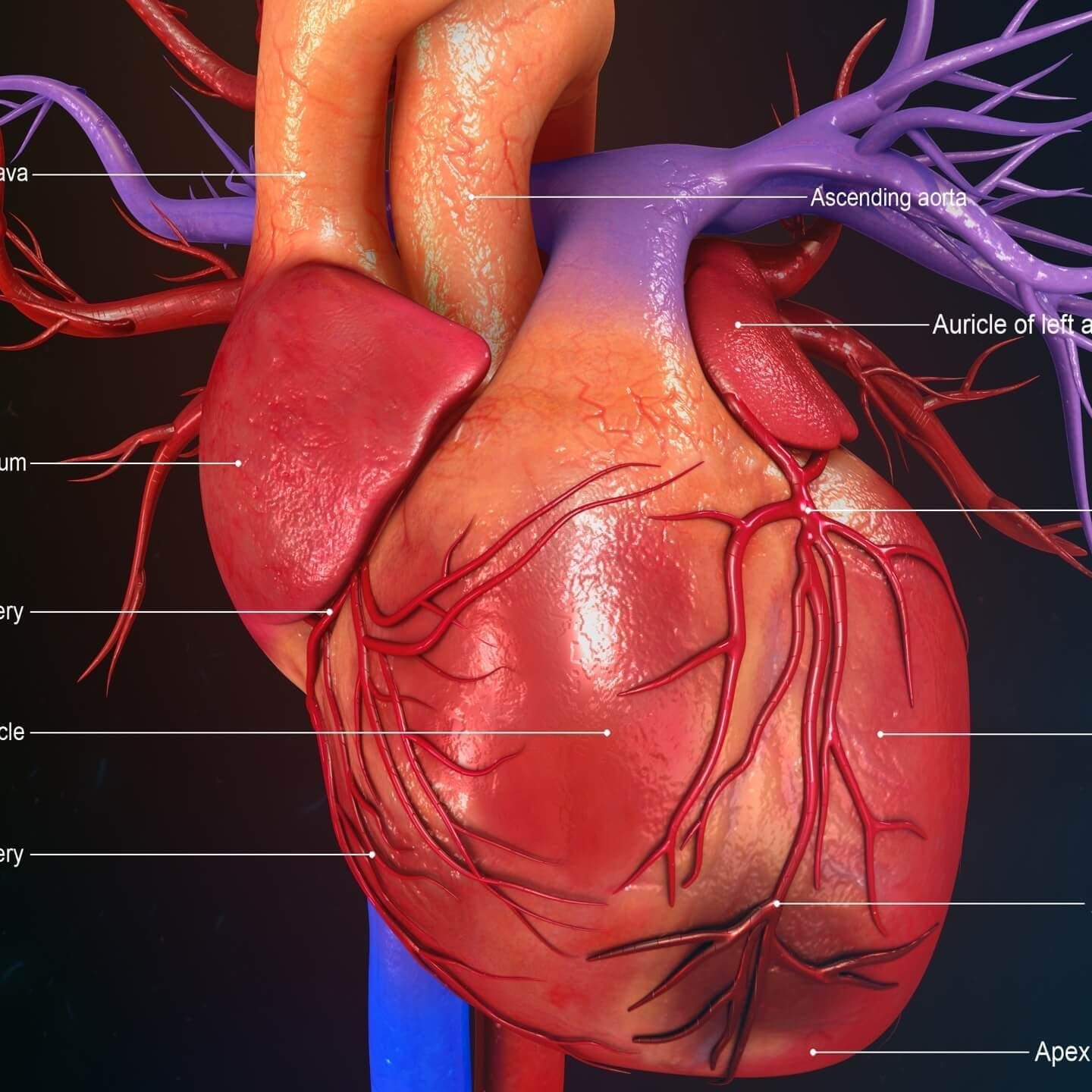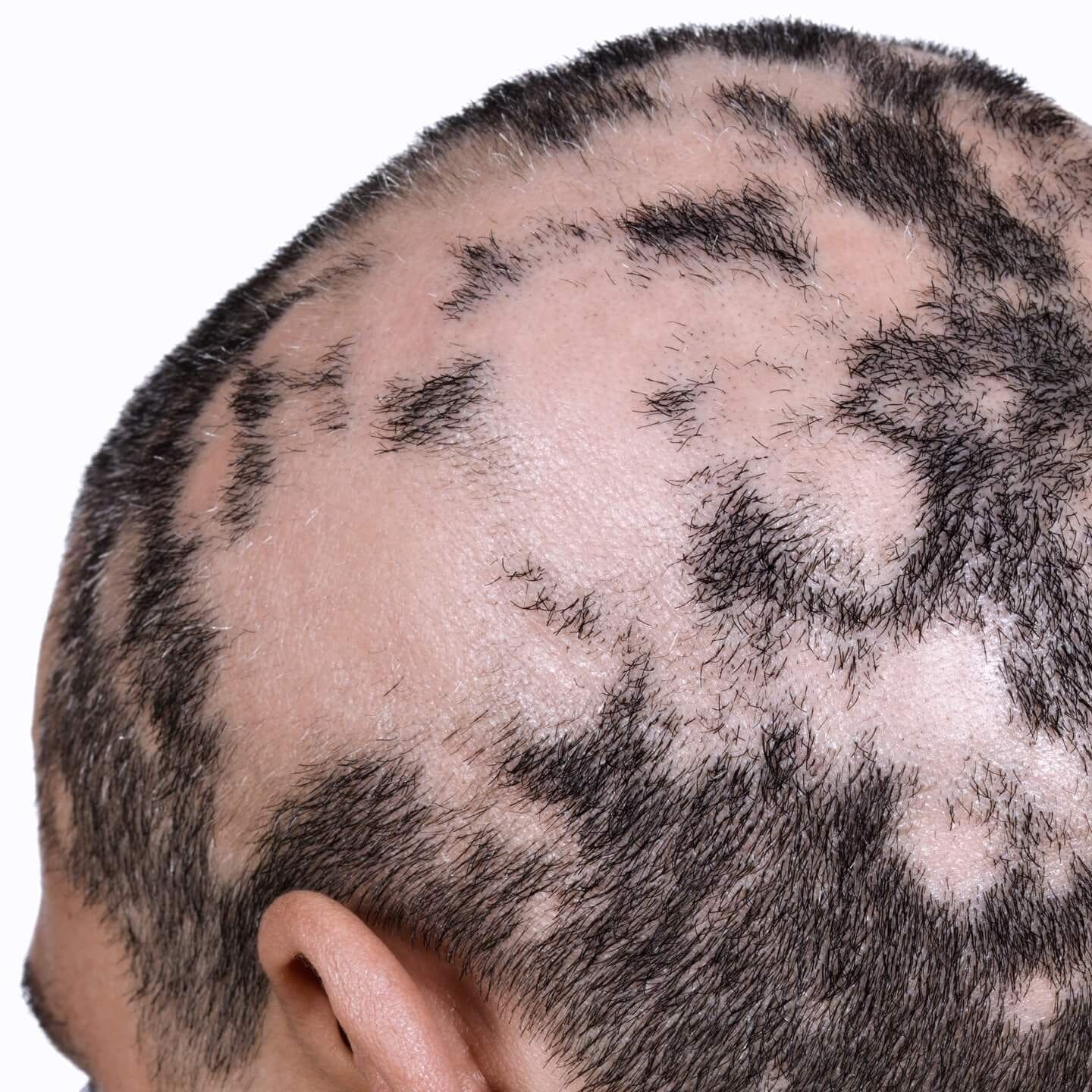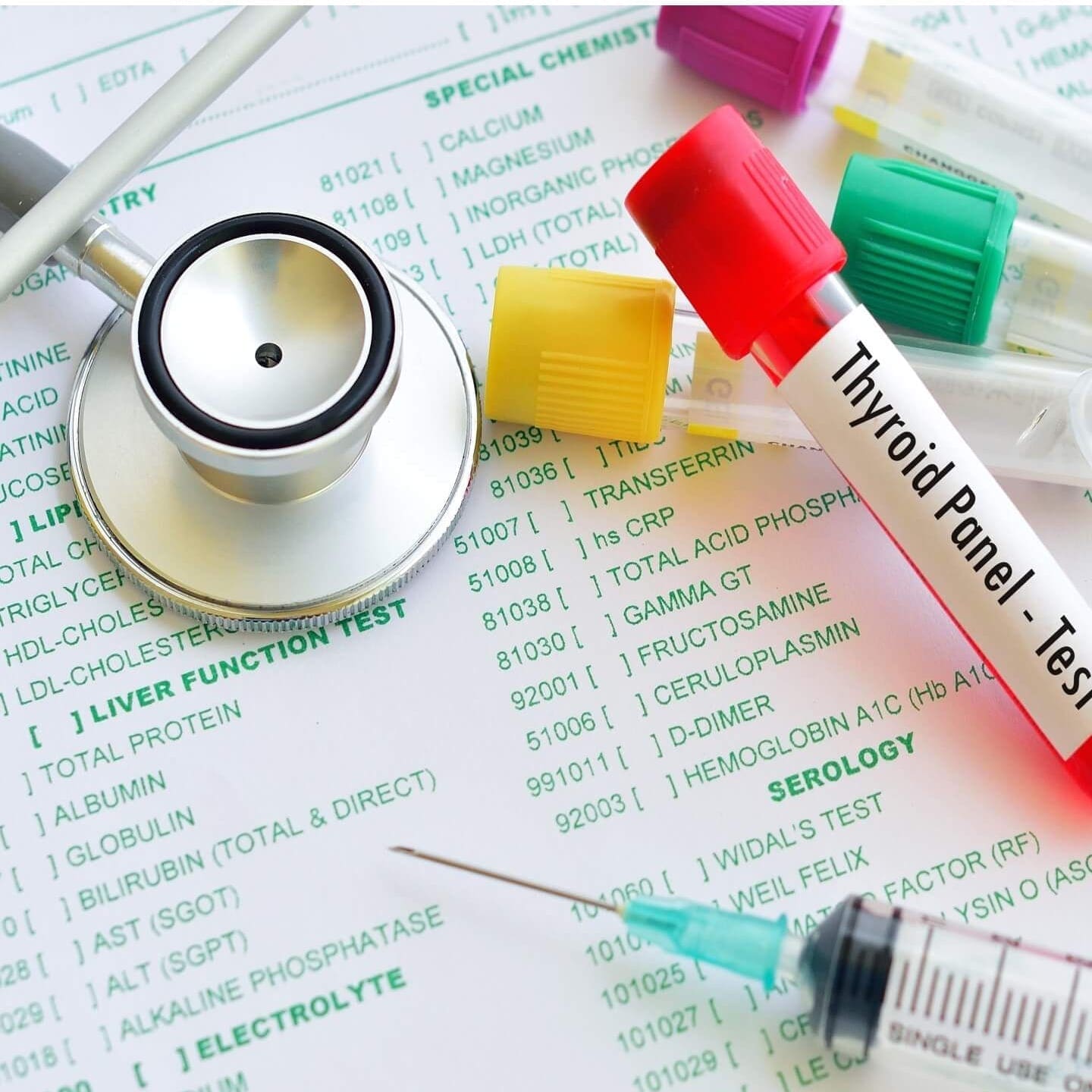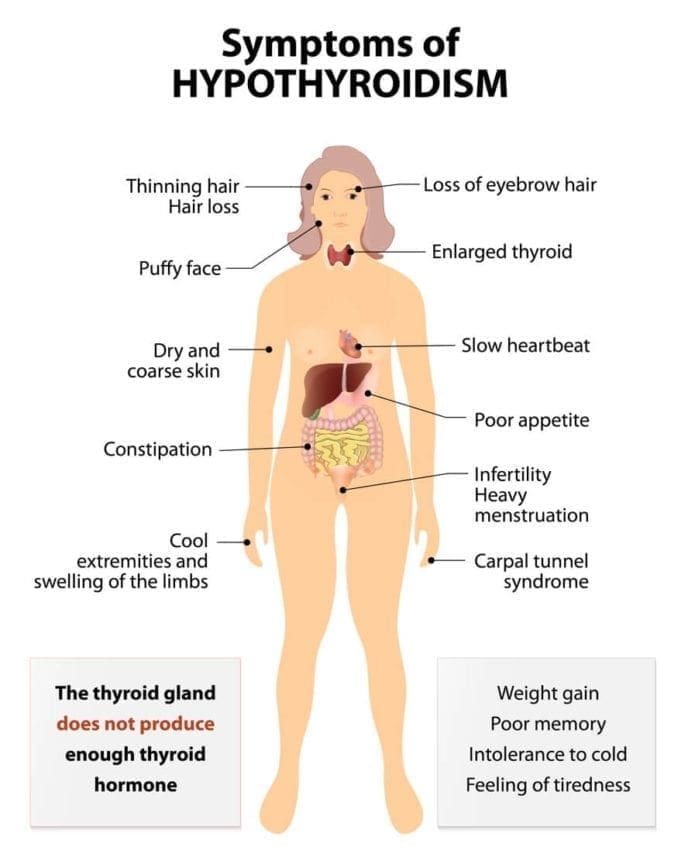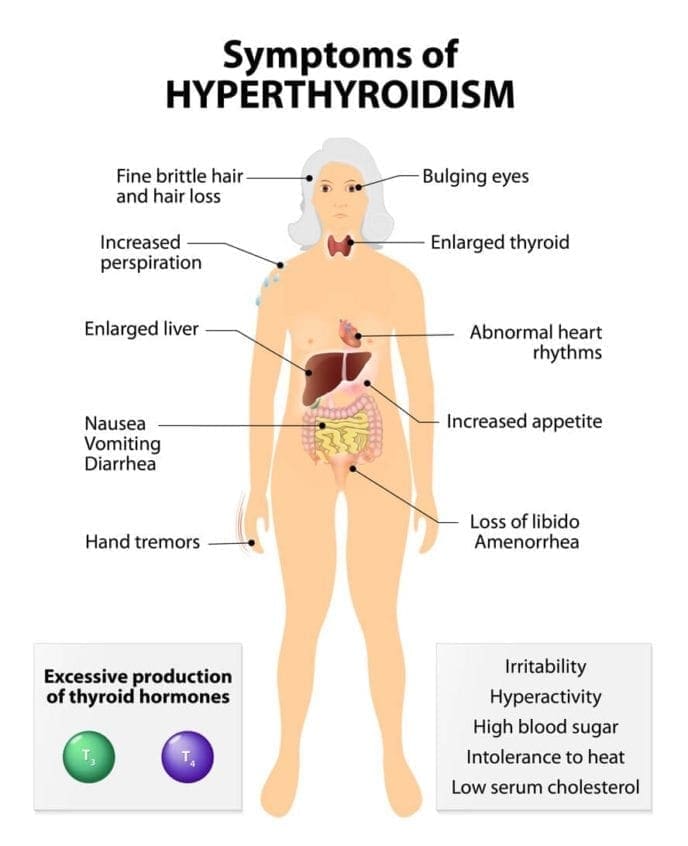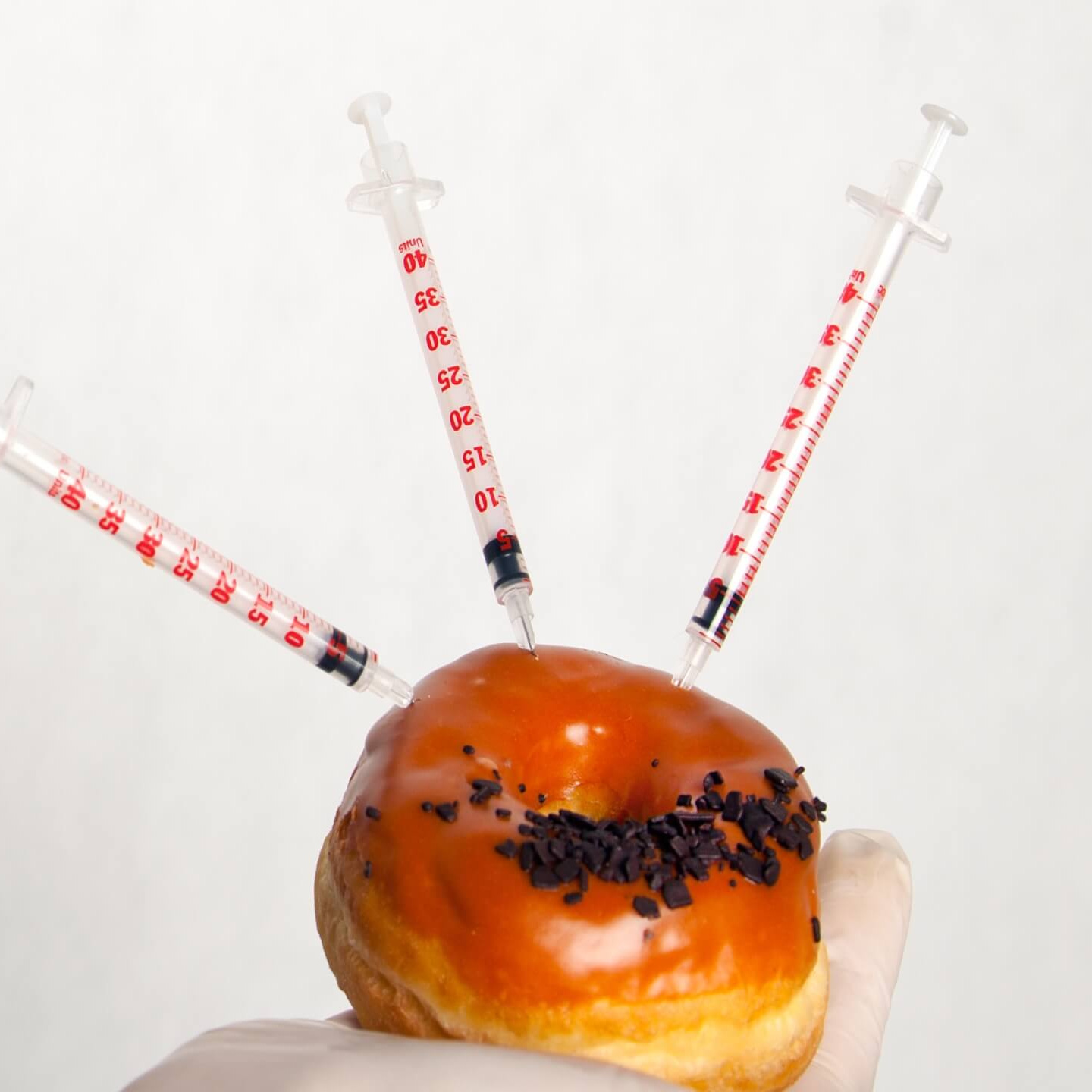Home »
Popular Posts
Thyroid Testing Issues: Why You’re Undiagnosed or Ineffectively Treated for Hypothyroidism
Naturopathic Nuggets about Thyroid Testing
- Over 200 million people worldwide suffer from thyroid disease. Limited thyroid testing explains why over 50% of those suffering from thyroid disease are undiagnosed, while countless others are improperly treated.
- Low thyroid could explain stubborn weight loss, outright weight gain or the full picture of an exhausted, emotional, achy, chilly, swollen, bloated, hair-thinning, constipated, forgetful & moody mess.
- Your doctor considers TSH (Thyroid Stimulating Hormone) to be the Gold Standard in thyroid diagnosis & monitoring of medication. They assume thyroid function is low, normal or high based on TSH readings alone. This overlooks a large portion of symptomatic, low thyroid patients with normal TSH.
- TSH testing is flawed as its “normal” range is still being researched & debated by expert clinic endocrinologists.
- Cellular Hypothyroidism cannot be detected with TSH. Patients are symptomatic, but all thyroid hormone blood levels are normal. This is because thyroid blood tests do not reflect actual tissue levels.
- A healthy pituitary-thyroid relationship is opposing. Like a thermostat, TSH turns high when the heat (Free T4) is low, and low when heat is high.
- Conditions such as Autoimmunity, Chronic Inflammation, Obesity, Nutrient Deficiencies, Food Allergies, Anemia (Low Iron), Hormonal Imbalance and/or Adrenal Dysfunction complicate the thyroid picture. The normal TSH – Free T4 regulation (thermostat) is broken in these scenarios, making TSH levels ineffectual to reflect thyroid function.
- For the body to use thyroid hormones, T4 has to be converted to T3. This is why both Free T3 & Free T4 levels are critical for proper thyroid diagnosis & monitoring of thyroid medication. This allows your doctor to determine if your thyroid conversion is working.
- Reverse T3 counteracts T4 &T3. In excess, Reverse T3 levels create Cellular Hypothyroidism wherein symptoms of low thyroid are present, but lab tests are often within normal ranges.
- Comprehensive thyroid testing should include TSH, Free T3, Free T4, Reverse T3, TPO & TG Autoimmune Antibodies Thyroid Peroxidase & Thyroglobulin
- Please consult your licensed Naturopathic Physician for proper interpretation of your lab tests, diagnosis & treatment of your thyroid and its underlying causes.
Proper thyroid testing to accurately diagnosis Hypothyroidism (low thyroid) is a struggle in today’s medical system. This is a growing concern considering the rampant existence of thyroid disease. In fact, over 200 million people worldwide suffer from thyroid disease. Limited thyroid testing explains why over 50% of those suffering from thyroid disease are undiagnosed, while countless others are improperly treated. Hypothyroidism is the most misdiagnosed health concern in the world yet conventional medicine continues their archaic understanding of thyroid function and treatment. This is devastating for the millions of patients suffering from the many debilitating symptoms that low thyroid can cause.
Low Thyroid is Frequently Overlooked
Thyroid Testing: Hypothyroidism
When your thyroid is low (Hypothyroidism), everything slows down. This means you may experience weight gain, tiredness, hair loss, chilliness, brain fog, joint & muscle aches/weakness, itchy or dry skin, depression, concentration or memory problems, heavy or irregular periods and constipation. You may many of these symptoms but your medical doctor has tested your thyroid and declared it fine. So frustrating! Something is going on, but what?
Hypothyroidism: Cold, Fat, Sad, Bloaty, Achy & Foggy
Thyroid Testing: What’s All The Fuss?
The thyroid is a butterfly shaped gland in the neck that produces the thyroid hormones, T4 and T3, which affect every part of your body. These hormones regulate metabolism, muscle building, stress mechanisms, protein, fat & carb metabolism, body temperature, heart function, heart rate and circulation. Thyroid hormones are even critical for normal fetus & baby brain and body development.
Hypothyroidism Affects the Whole Body
Thyroid Testing: Turning Up the Heat
TSH (Thyroid Stimulating Hormone) is released by a pea sized gland in the brain called the pituitary. TSH stimulates thyroid hormone production, mostly T4 thyroxine. The pituitary-thyroid relationship is opposing. Like a thermostat, TSH turns on when the heat (Free T4) is low, and off when heat is high.
Healthy Thyroid-Brain Works Like a Thermostat
Thyroid Testing: Classical Hypothyroidism
This means when Free T4 is low, TSH goes high, seen in classical Hypothyroidism. Conversely, when Free T4 is high, TSH goes low, seen in classical Hyperthyroidism. This thermostatic regulation is more typical, which is why conventional medicine relies on only TSH to diagnose & monitor thyroid medication. In fact, thyroid medication is adjusted it to keep TSH in the normal range. In a sense, TSH readings are used to assume whether thyroid function is high, low or normal. This becomes controversial as a large part of the population exist in a grey area of low thyroid function, known as sub-clinical hypothyroidism (Andersen, Pedersen, Bruun, Laurberg, 2002). Often, TSH is still within range but symptoms exist.
TSH Cannot Detect Most Hypothyroidism
Thyroid Testing: The Common, Unreliable Thyroid Test
When your doctor tests your thyroid, he/she primarily measures the hormone TSH (Thyroid Stimulating Hormone). This is because conventional medicine considers TSH the gold standard for thyroid testing, diagnosis & treatment. When thyroid diagnosis relies only on TSH testing, a large portion of symptomatic patients are overlooked.
Your Doctor Considers TSH the Gold Standard Test
The first issue with TSH is the reference range itself which is constantly under researched scrutiny. The normal range of TSH continues to be debated by expert clinical thyroidologists (Biondi 2013).
TSH “Normal” Range Debated by Experts
The second issue is that TSH testing is ideal for identifying advanced thyroid disease. Since thyroid hormone levels fluctuate in the first five to ten years, TSH testing alone is not reliable for new thyroid patients.
TSH ideal for Advanced Thyroid Disease
Thirdly, TSH testing alone is pointless to diagnose and monitor thyroid medication for those with pituitary dysfunction, as the typical hormone balance is flawed. The thermostat is broken so it cannot turn on. The pituitary won’t make enough TSH, so the TSH will not increase, and T4 levels are lower making proper diagnosis & monitoring impossible (Howlett 2017).
TSH is Irrelevant in Pituitary Disease
Additionally, thyroid blood tests identify hormone levels in the blood, but that does not reflect the amounts in the tissues. Studies show normal thyroid blood tests, but low tissue levels so that functionally the patient is low thyroid. This is called Thyroid Resistance, or Cellular Hypothyroidism, and cannot be detected by routine thyroid blood tests such as TSH.
Blood Tests Do Not Reflect Tissue Levels
Finally, TSH values can be misleading when other conditions complicate the picture. These include autoimmunity, chronic inflammation, obesity, nutrient deficiencies, food allergies, anemia (low iron), hormonal imbalance and/or adrenal dysfunction. The TSH – Free T4 regulation (thermostat) is broken in these scenarios, making TSH levels ineffectual to reflect thyroid function (Hoermann et al. 2017).
Many Conditions Complicate Thyroid Diagnosis & Monitoring
Thyroid Testing: The Superheroes of Thyroid
The thyroid gland produces 80% of T4 hormone, while only 20% of T3 hormone. Yet, it is the T3 hormone (Superhero) that has the most power in binding to the cell receptors and causing action; a short power punch. The Sidekick, T4 has minimal hormonal effect but lasts longer. In fact, T4 is really good for acting as a backup. This is because T4 can be converted to T3 at the tissue level, like a Sidekick stepping up in a crisis when the Superhero is down. The importance of these hormones show that Free T4 & Free T3 levels should also be considered in thyroid testing for diagnosis and monitoring of thyroid medication.
Always Test for Thyroid’s Superhero & Sidekick: Free T3 & Free T4
Thyroid Testing: Your Thyroid’s Inner Villain
Typically, T4 (inactive) converts to T3 (active) thyroid hormone by losing an iodine atom. T4 hormone has 4 iodine, whereas T3 has 3 iodine atoms. Sometimes, things go awry and Reverse T3 is created. This inactive form of T3 causes chaos in the body. Reverse T3 does not deliver oxygen & energy to the cells, causing symptoms of low thyroid.
Reverse T3 is Thyroid’s Inner Villain
Like an evil villain would, Reverse T3 counters the benefits of our Superhero T3 & its Sidekick T4, so our heroes are present but rendered useless. This is called Cellular Hypothyroidism, where low thyroid symptoms are present, but standard blood testing is normal. Labs often show TSH & Free T4 within normal range, low Free T3 levels, but high Reverse T3 levels.
Cellular Hypothyroidism: Powerless Thyroid Hormones
Thyroid Testing: What Brings Out Your Thyroid’s Inner Villain?
There are certain times that your body has to slow down your metabolism, and it uses Reverse T3 to do this. Reverse T3 is your inner villain that counters proper thyroid function. When you are sick with the flu, your body needs to rest, so it purposefully saves energy by increasing your Reverse T3 levels. Many research studies have verified this as Euthyroid Sick Syndrome. Literally translated it means your thyroid is fine but you are sick.
Reverse T3: a Good Thing Gone Bad
Thyroid Testing: Role of Inflammation
Alternatively, this is referred to as Cellular Hypothyroidism, as functionally the body is low thyroid even if the blood levels are normal. Basically any immune dysfunction or inflammation in the body causes reduces conversion of T4 to T3 thyroid hormone, so there is less active thyroid hormone (T3) to make you feel better.
Any Inflammation Lowers Thyroid Function
Thyroid Testing: What Affects Your Thyroid Function?
- Autoimmune Disease (Alopecia, Ankylosing Spondylitis (AS), Celiac, Crohn’s or Ulcerative Colitis, Diabetes Type I, Lupus, Multiple Sclerosis (MS), Rheumatoid Arthritis (RA), Sarcoidosis, Vitiligo)
- Adrenal Fatigue
- Antibiotic Overuse
- Cancer
- Candidiasis (Systemic Yeast Infection)
- Chronic Disease
- Chronic Inflammation
- Chronic Physical or Emotional Stress
- Diabetes
- Dieting, Calorie-Restricted (HCG or VLCD very low calorie diets)
- Drugs (Blood Pressure, Diabetes, Seizure, Narcotics, Antidepressants)
- Dysbiosis
- Food Allergies
- GERD (Acid Reflux)
- Heart Attack / Bypass Surgery
- Illness or Injury
- Leaky Gut
- Low IRON (Ferritin)
- Nutrient Deficiencies (Iron, Zinc, Selenium, B vitamins, Vitamin D)
- Obesity
- Pesticides, Non-Organic, GMO Foods
- Plastic & Estrogen Disruptors
- SIBO Small Intestine Bacterial Overgrowth
- Starvation
- Surgery
Chronic Conditions Affect Healthy Thyroid Function
Thyroid Testing: The Five Faces of Hypothyroidism
There are different ways that the body could be functionally low thyroid. You could have one symptom or many. It could be just difficult weight loss, outright weight gain or you could be an exhausted, emotional, achy, chilly, swollen, bloated, hair-thinning, constipated, forgetful and a moody mess.
Thyroid Could Be a Culprit if You Can’t Lose Weight
1. Pituitary Dysfunction
- Low Thyroid Symptoms
- Cause: High Cortisol from Stress, Pregnancy, Blood Sugar Imbalances, Infection, Insulin Resistance (High Blood Sugar, Weight Gain)
- Low TSH but within range
- Low Free T4
2. Poor Conversion T4 to T3
For the body to use thyroid hormones, T4 has to be converted to T3. Just like your raw cupcake batter needs a working oven to convert your batter into edible cupcakes, your body needs to convert T4 into T3 to be used by the cells. This is why both Free T3 & Free T4 levels are critical for proper thyroid diagnosis & monitoring of thyroid medication. This allows your doctor to determine if your “oven” or thyroid conversion is working.
- T4 must convert to T3 to enter the tissues
- Low Thyroid Symptoms
- Cause: Inflammation damages Cells impairing conversion
- Cause: High Cortisol suppresses T4 to T3 conversion
- Normal TSH & Free T4
- Low Free T3
3. High Thyroid Binding Globulin (TBG)
- TBG protein carries thyroid hormones in blood
- Low Thyroid Symptoms
- High TBG = Low Free Thyroid Hormones
- Cause: High Estrogen (Birth Control Pill / IUD / Estrogen Cream / Premarin)
- Cause: Hypothyroidism, Pregnancy, Liver Disease
- Normal TSH & Free T4
- Low Free T3
- High TBG (not usually tested)
4. Low Thyroid Binding Globulin (TBG)
- TBG protein carries thyroid hormones in blood
- Low Thyroid Symptoms STILL
- Low TBG = High Free Thyroid Hormones
- Cause: High Testosterone (Women: PCOS & Insulin Resistance)
- Cause: Illness, Malnutrition, Hyperthyroidism, Kidney (Nephrotic) Disease
- Tissue Resistance to High Thyroid Levels
- Normal TSH & Free T4
- High Free T3
- Low TBG (not usually tested)
5. Thyroid Resistance / Cellular Hypothyroidism
- Thyroid & Pituitary Glands Normal
- Low Thyroid Symptoms
- Cells don’t getting Thyroid Hormone T3
- Cause: Autoimmunity, Chronic Inflammation, Obesity, Nutrient Deficiencies, Food Allergies, Anemia (Low Iron), Hormonal Imbalance &/ Adrenal Dysfunction
- Normal TSH & Free T4
- Normal Free T3
Comprehensive Thyroid Testing
Below are a list of blood tests that your medical doctor may request to help properly diagnose whether you have thyroid disease. Whatever your medical service plan (MSP) doesn’t cover can be done by a licensed Naturopathic Physician*. Please inquire if your extended health care provides coverage for non-MSP lab tests. Not all Naturopathic Physicians have Prescribing Authority, wherein they can prescribe the appropriate thyroid medication required to improve your thyroid health.
* Take THYROID medication AFTER LAB tests to ensure accurate testing
* Please consult your licensed Naturopathic Physician for proper interpretation of your lab tests, diagnosis and treatment of your thyroid and its underlying causes
TSH (Thyroid Stimulating Hormone)
- TSH is often the ONLY thyroid test done by your doctor. In Canada, if TSH is normal, all further thyroid testing is CANCELLED
- TSH levels indicate how pituitary is affected by Free T4 levels
- Pituitary gland has different thyroid hormone so it should not be used to gauge thyroid tissue levels
- Higher TSH levels can be helpful to investigate possible low thyroid (hypothyroidism)
- Levels based on healthy individuals with long standing thyroid disease
- Levels should be < 2
Free T3**
- MOST important thyroid lab test
- Canadian Healthcare CANCELS this test with NORMAL TSH levels
- Short lived hormone
- Levels of active thyroid hormone relates to thyroid function & effect
- Levels should be upper 1/3
Free T4*
- 2nd most important thyroid lab test
- Canadian Healthcare CANCELS this test with NORMAL TSH levels
- Levels of reserves
- Free T4 reserves can convert to either Free T3 or Reverse T3
- Higher Free T4 converts to Reverse T3 when autoimmunity, chronic inflammation, obesity, nutrient deficiencies, food allergies, anemia (low iron), hormonal imbalance and/or adrenal dysfunction exist
- Levels should be upper 1/3
- EXCEPTION: Free T4 Levels LOW with Pure T3 hormone (Cytomel, Liothyronine, T3 SR)
Reverse T3
- Levels of counterproductive or inactive T3
- Reflects levels of inflammation, stress or nutrient deficiencies that may exist
- Higher Reverse T3 is linked to thyroid resistance, cellular or tissue hypothyroidism
- Levels should be as LOW as possible
- Levels > 15 may reflect cellular thyroid resistance, inflammation &/ leptin resistance (dieting)
- HIGH Reverse T3 may disguise Free T3 as NORMAL
Thyroid Peroxidase (TPO) & Thyroglobulin (TG) Antibodies
- High antibody levels linked with Autoimmune Diseases: Hashimoto’s Thyroiditis (low thyroid) or Grave’s Disease (high thyroid)
- High antibody levels linked with Autoimmune Diseases in Brain (Diamond et al. 2013) & Breast (Fröhlich & Wahl 2017)
- Levels should be as LOW as possible
- Regular testing & tracking with Hashimoto’s Thyroiditis (Autoimmune Hypothyroidism)
Ferritin IRON Stores & IRON Studies
- Low ferritin / iron reduces the activity of thyroid hormone, leading to Hypothyroidism (low thyroid)
- Ferritin levels should be minimum 70 – 80
- IRON Saturation should be minimum 35%
Sex Hormone Binding Globulin (SHBG)
- Higher levels indicate tissue levels of thyroid hormone
- This protein is affected by only Thyroid, Estrogen & Testosterone hormones
- High SHBG Causes: Hyperthyroidism, Pregnancy, Hormone, Caffeine, Liver Cirrhosis, High Estrogen (Birth Control Pill / IUD / Estrogen Cream / Premarin)
- Low SHBG Causes: Hypothyroidism, Obesity, Testosterone, Insulin, Cortisol (Stress Hormone), Progesterone Hormones
- Low SHBG predicts Type 2 Diabetes (Lakshman, Bhasin, Araujo, 2010)
CRP – HS (C Reactive Protein High Sensitivity)
- Higher levels indicate inflammation which promotes cellular hypothyroidism
- Levels should be < 1
Thyroid Symptom List
If you experience some of the following symptoms, please see a Naturopathic Physician to evaluate your Thyroid Health. Do you have any of the relevant symptoms of Thyroid dysfunction:
- Do you have hoarseness of your voice that has not always been present?
- Do you have any swelling in your face?
- Have you ever had a goitre or swelling in the lower front of your neck?
- Are you unusually sensitive to alcoholic beverages/anesthetics or sedative drugs?
- Do you have dry, scaly skin?
- Do you have pallor or unusual whiteness of your skin?
- Have you ever had a yellow colour to your skin?
- Do you have decreased sweating?
- Has your hair become drier and coarser?
- Do you have a decrease in the amount of scalp hair?
- Have you had a decrease in the outer 1/3rd of your eyebrows?
- Have you noticed a ‘dirty’ or thickened skin appearance of your elbows and knees?
- Do you have delayed reflexes?
- Do you have persistent numbness and tingling in any part of your body and extremities?
- Do you ever get tired out more easily than you used to?
- Have you ever had protruding eyes?
- Do you have swelling around the eyes or of the eyelids?
- Do you often have blood-shot eyes?
- Do you have excessive tearing of your eyes?
- Have you ever been told you have an enlarged heart?
- Do your ankles swell or do you otherwise notice evidence of body fluid retention?
- Have you ever been told you have an abnormal electrocardiogram?
- Do you have less than normal energy?
- Have any of your blood relatives had thyroid gland problems or disease?
- Do you have headaches?
- Do cold temperatures bother you in the sense that you like the room temperature higher than other people OR do you need more bedclothes than others?
- Do you have difficulty in pronouncing words?
- Have you ever felt pain in the lower front part of your neck?
- Have you had an unexplained increase in weight recently
- Have you had a recent unexplained decrease in weight?
- Do you have rough skin or weakened nails that have not always been this way?
- Do you have difficulty in concentrating?
- Are you unusually forgetful?
- Do you feel that you are emotionally unstable but that this has been only in recent weeks or months?
- Do you feel tired after a usual night of sleep or has your sleep or rest requirement increased?
- Do you have blurred vision?
- Do you have ringing of the ears?
- Do you have dizzy spells?
- Do you have a decrease in your ability to hear?
- Are you inclined to be more nervous than is customary for you?
- Do you have times when you have difficulty breathing?
- Have you ever been told that you had angina (pain which comes from the heart and may have gone down to your left arm)?
- Do you sometimes have an attack of rapid or irregular heart beat?
- Do you have dyspepsia or indigestion?
- Do you have excess saliva?
- Do you frequently feel nauseated?
- Do you have any abdominal swelling?
- Do you have any abdominal pain?
- Have you ever had gall bladder trouble?
- Do you have constipation, delay or difficult bowel function?
- Do you frequently have diarrhea?
- Is there a problem with sex drive?
- Is there any problem with sexual capacity?
- Is there any problem concerning having children. Conception, etc.?
- Do you have any increased menstrual periods?
- Has there been any change to your menstrual pattern?
- Do you have menstrual pain?
- Do you have generalized aches?
- Do you have joint pains?
- Have you ever had difficulty swallowing?
Related Thyroid Disease: The Missing Piece of Your Health Puzzle
References
Andersen S, Pedersen KM, Bruun NH, Laurberg P. Narrow individual variations in serum T4 and T3 in normal subjects: a clue to the understanding of subclinical thyroid disease. The Journal of Clinical Endocrinology & Metabolism. 2002 Mar 1;87(3):1068-72.
Biondi B. The normal TSH reference range: what has changed in the last decade?. The Journal of Clinical Endocrinology and Metabolism. 2013 Sep;98(9):3584.
Diamond B, Honig G, Mader S, Brimberg L, Volpe BT. Brain-reactive antibodies and disease. Annual Review of Immunology. 2013 Mar 21;31:345-85.
Fröhlich E, Wahl R. Thyroid autoimmunity: role of anti-thyroid antibodies in thyroid and extra-thyroidal diseases. Frontiers in Immunology. 2017 May 9;8:521.
Hoermann R, Midgley JE, Larisch R, Dietrich JW. Recent advances in thyroid hormone regulation: toward a new paradigm for optimal diagnosis and treatment. Frontiers in Endocrinology. 2017 Dec 22;8:364.
Koulouri O, Moran C, Halsall D, Chatterjee K, Gurnell M. Pitfalls in the measurement and interpretation of thyroid function tests. Best Practice & Research Clinical Endocrinology & Metabolism. 2013 Dec 1;27(6):745-62.
Lakshman KM, Bhasin S, Araujo AB. Sex hormone–binding globulin as an independent predictor of incident type 2 diabetes mellitus in men. Journals of Gerontology Series A: Biomedical Sciences and Medical Sciences. 2010 Jan 27;65(5):503-9.
Problems with the assessment of thyroid function in pituitary disease | The Pituitary Foundation [Internet]. Pituitary.org.uk. 2017 [cited 10 September 2018]. Available from: https://www.pituitary.org.uk/news/2017/03/problems-with-the-assessment-of-thyroid-function-in-pituitary-disease/
Wartofsky L, Dickey RA. The evidence for a narrower thyrotropin reference range is compelling. The Journal of Clinical Endocrinology & Metabolism. 2005 Sep 1;90(9):5483-8.
This information is for educational purposes only and does not advocate self-diagnosis. Due to individual variability, consultation with a licensed health professional, such as a licensed naturopathic physician is highly recommended, prior to starting a natural treatment plan. For further information, see Terms of our Website.
Follow Dr. Jiwani
Popular Posts





